Will we transform ourselves from an archaic Scarcity Economy to a “Gift Economy” – much as portrayed in Star Trek? Is philanthropy a crucial recycling direction for wealth to take? I participate in round tables on philanthropy theory. Here is an important one.
Philosopher Fed Turner has some interesting insights: ”There is a myth that we as a species have moved from having an edenic and arcadian gift exchange economy to a cold and corrupt market economy. As a myth it has its uses; as a fact it will not fly. Archaeologists and physical anthropologists now find trading practices among the earliest humans nearly 200,000 years ago; we were always buying, selling, hiring, trucking and bartering. And economists tell us that even in today’s advanced industrial economies the amount of value that is transferred by gift is greater than the amount transferred by market exchanges. This may sound counter-intuitive until we reflect that gift includes the free services rendered by parents to their children, husbands and wives to each other, friends to friends, hobbyists to their community, and the bequests of the dying to their heirs.
“We have plenty of theory about markets, since Locke and Smith and their ilk. There is some theory about gift exchange in traditional tribal societies (Marcel Mauss, for instance), but very little until now about the economic, moral, social, political, ecological, aesthetic, and spiritual implications of today’s gift economy in advanced societies like the United States.”
Finally, there’s a fun item — EON: the Eye of the Needle Foundation — my own article that stimulated discussion in philanthropic circles, about an entirely new kind of charitable institution, one that might help dramatically enlarge the pot of modern generosity by offering the super-wealthy (and many of the rest of us, too) some unique incentives. Something for the man or woman who has everything.
=== Can We Learn Useful Things About Society/Security From Fiction and Magic? ===
Is fiction a security issue? DARPA wants to know how stories influence our thoughts and actions. And what form of literature can be more radical than science fiction – which teaches that the future can be different than the past – that humans might stop making the same mistakes over and over again…. and hence, that it will be our fault, if we choose not to stop.
Recording Police Abuse Could Get You ARRESTED! Magician, supertainer and paladin of freedom Penn Jillette recorded this episode of Penn Point back in June. I highly recommend Penn’s rants; they are uniformly smart, vivid and informative. Even when I disagree, I feel glad he is out there, fighting for us, and proud to know him. (I have an ulterior motive in this case; Penn repeatedly touts my nonfiction book The Transparent Society.
I especially like one of Penn’s aphorisms: “Always look for the solution that’s for more freedom.” I say something almost identical in The Transparent Society. Alas, in the info age, people point to problems and all-too often suggest solving them with LESS information flow.
Take recent arguments over renewing the Patriot Act. I despise the damned thing. (See where I predicted it – as well as terror-doom for the WTC towers – in The Transparent Society on page 206.) But I don’t waste my time writhing over the parts of the PA that let government see more. That trend is inevitable and unstoppable and freedom knights who rail against those parts are just foolish. It is the OTHER portions of the Patriot Act that are demonic, hateful and downright dangerous… the sections that remove oversight and allow government to operate more in secret and less under our supervision. Those are the parts we should be fighting to eliminate. But political reflexes tend to be dumb, and liberals are no exception, even when they are on the right side of an issue.
=== Symptoms of Sickness… Signs of Health ===
Want to perk up? Here are 25 minutes worth watching: Kevin Kelly on the future of book publishing, speaking about how value will be generated in a free copy world: “The internet is the world’s largest copy machine.” We can’t stop books from being copied, so we need to make it easier to pay for immediate, interactive, personalized content. Kevin is very smart and always worth-heeding. It happens I think he’s wrong here in several ways. But tune in!
Caltech basketball team just won its first victory since 1986! A 310 game losing streak… done!
The team controlling the Kepler planet-hunter telescope has released a small part of its 1st 4 months of data recently. It revealed more than 1200 potential extrasolar planets. If a reasonable percentage of these worlds turn out to be independently verified, this treasure trove will yield more results in 4 months (1200+) than astronomy had found in the past 15+ years (550+ objects). (Um, than astronomy had found in the last 5,000 years.)
Kepler uses the transit or partial eclipse method to identify new planets. It keeps a constant vigil on 156,000 stars that are up to 3000 light-years away in a region close to the star dense galactic plane in the constellations of Cygnus and Lyra…. Since other planetary systems can exist at all different angles, we would only expect that a small percentage of extrasolar systems (1-10%) would be edge on to us. That means that Kepler is really only sampling 1,500 to 15,000 systems. That makes the fact that they have found 1200 potential planets all the more impressive!
Findings. Neptune-type worlds seem dominant. The large number of Super Earths (23.3%) that may be determined to be rocky after further study, combined with the significant percentage of Earth sized bodies (5.5%) suggests that a sizable percentage of stars that could show evidence of Earths seem to have them.
But note, Kepler’s results are so-far weighted toward finding planets with quick orbital “years.” Later data must gather to find those orbiting farther out. “There were 54 planets detected in the water-possible zone. Five (5) of those were Earth sized or smaller. This is where things really get interesting. These are the gems in the group.”
Those who have read (and enjoyed) STAR WARS ON TRIAL… or the original Salon article that first accused the Lucasian universe of nostalgic-romantic hatred of the future… might enjoy an hour-long podcast discussion that assesses the article, from the perspective of several british and australian writer-fans. They try hard. They are very silly, but they do try hard. (Someone tell them about STAR WARS ON TRIAL, in which George Lucas’s defenders have their chance… and come up wanting.
=== Unabashedly Political — Be Afraid! ===
“Spending cuts approved by the House would end America’s reign as a scientific leader if they are enacted into law, a former Bush administration Energy Department official said yesterday. “Left intact, the massive cuts in research contained in the bill passed on 19 February would effectively end America’s legendary status as the leader of the worldwide scientific community,” Raymond Orbach wrote in an editorial published online by the journal Science.
I guess the Saudis haven’t changed their plans for us, after all. Their lackeys are still trying to end Pax Americana from within. This is war.
Speaking of mouthpieces for the real, behind-the-scenes instigators of Culture War… try this Glenn Beck conspiracy generator.
See this.
Absorb it.
Spread it.
If you spread nothing else this year, spread that one link.
I consider myself a libertarian who believes in competition as THE great creative human force. Objecting to the rise of a dominant oligarchy is not a SOCIALIST issue! It is an issue to anyone who wants the enlightenment… including its competitive markets and small businesses… to survive.
I hated the soviets and commies as dangerous ignoramuses and threats to the enlightenment, markets and freedom.
I hate the new oligarchy for exactly the same reasons — both bands of would be aristocratic lords think they can “allocate” wisely in secret cabals. Both communists and oligarchs believe that history and justice back up their monopoly of power. Both replicate EXACTLY the failure mode that ruined every other brief renaissance of openness and market freedom. The oligarchs try to hide this by relentlessly claiming to favor market competition — without ever showing a single example of a competition-enhancing action on their parts.
I’ve said it again and again. The people who should be angriest at the neocons aren’t the liberals or even the pinko socialists (two very different things). The ones who should despise the neocons most of all – with red-hot livid hatred – should be the libertarians. And fools like the Pauls, who think that the GOP is a hold-your-nose choice that’s better than the democrats, are all profoundly stupid fools.



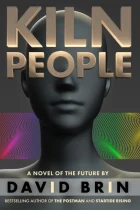

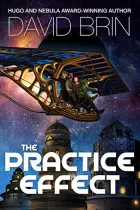




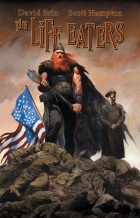
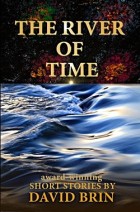
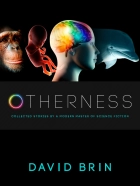
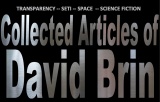
To update an old expression, in the kingdom of the blind police state, the sighted citizen is king. I can think of no reason to lie down and let the Patriot Act roll over us. The government has no need for much of the information that it wants to see, and libertarians need to shout stop.
As a (moderate) libertarian, I was also disturbed by Kelly’s arguments. I prefer to own “content.” That way, I control it. The government can’t monitor what I do in my home (yet), and the industry can’t, either. I do wonder, given the world that Kelly predicts, how authors will get paid for their writing. I say that as someone who is trying to get a novel published.